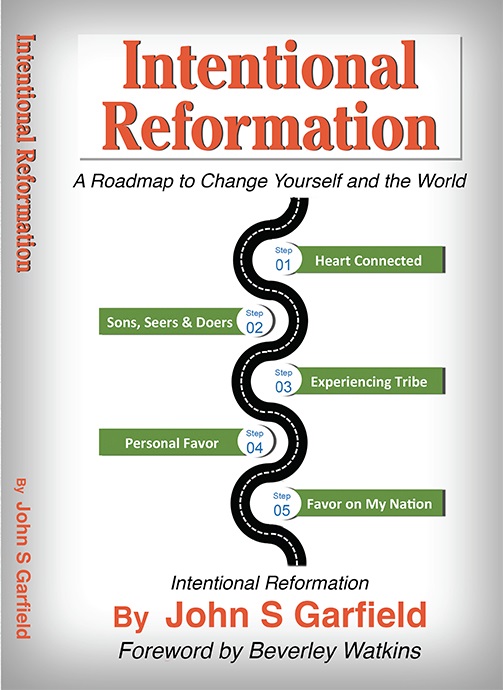Secular marketing is the sincere belief that I can write copy that will cause people to buy something. It’s something between an art and a science with a statistical feedback loop from clicks, views, calls, buys, and split testing. The foundation for modern marketing is a book written in 1928 by Edward L Bernays called (ironically) Propaganda, the Public Mind in the Making. This book explored the psychology behind manipulating the masses to influence politics, consumer choices, business, art, education, science and corporate image, which we now call branding. His best-known campaigns include a 1929 effort to promote female smoking by branding cigarettes as feminist Torches of Freedom. Bernays’ term for shaping support for World War I was Psychological Warfare and later, Engineered Consent. Bernays proudly wrote in his 1965 autobiography that Goebbels read and used his books for the German propaganda machine in World War II.
The latest treatise on the status of modern Cognitive Warfare is PsyWar by Robert Malone. It’s a well-written, contemporary eye-opener!
Marketing copy clearly has a dubious past and, like modern AI, it can be used for good or evil. Secular marketing in business typically begins with money as the motive. When we have a product to sell, we hire marketing professionals to persuade the masses to buy it. By writing compelling copy, buying ads, and optimizing sales, more cash flow is generated. However, this business transaction disregards the transformative impact of marketing. What happens to people and hearts when they are driven solely by the pursuit of money (1Tim 6:10)? When copy degenerates to propaganda with the introverted lure of temptation and deception, it borders on witchcraft – the manipulative power to control people is a real spiritual phenomenon in our culture, past and present. What if it works?
1Tim 6:10 – For the love of money is a root of all kinds of evil. Some people, eager for money, have wandered from the faith and pierced themselves with many griefs.
Good marketing is prophetically compelling because it confirms a direction Holy Spirit is already speaking to people. Marketing can be the delivery platform with the spiritual power to set captives free and bless people who respond to it – buy the idea or commodity. Marketing truth is the only societal protection against the deceptive power in propaganda to mobilize evil and cause grief. Marketing is a noble profession, a gun that must be pointed in the right direction.
Marketing with prophetic Integrity – As believers, our great commission to go into all the world is marketing. There isn’t a motive to manipulate people into the Kingdom by social coercion. But there is some good news that warrants good marketing. Here are nine keys to that unlock the true potential of marketing with prophetic integrity in a business context.
#1. Identity – Connection with our genuine identity, purpose, and strategy inspires clarity, creativity, and a sense of contending for our heritage. We’re on the same page with our Father and share a purpose He can help us accomplish. We’re letting go of pretensions and becoming our authentic selves, who we’re truly meant to be – His sons and daughters!
#2. Story – The real goal of marketing is to articulate the story behind our God-given Identity, purpose, and strategy. People will do more for a cause than they will for money. Real motivation is always rooted in the purpose God writes in our hearts. Marketing is the prophetic process of redeeming that story in words and deeds that connect to a higher cause, a living, breathing, moving Kingdom Purpose. The Word of God is alive and Active (Heb 4:12).
#3. Purpose – Businesses, as well as people have a Kingdom purpose. When known via marketing, that purpose is the reason people buy your why. They are really buying their own why because it’s very motivational, much more so than money alone. They are buying their destiny, not just a commodity; marketing connects the product and the purpose! Real marketing isn’t manipulating the masses, it’s manifesting Father’s purpose on earth as it is in heaven. People are drawn to it, not deceived by it. Truth is like a lion; you don’t have to defend it. Let it loose; it will defend itself (St Augustine). We market the prophetic Lion of truth that sells itself.
#4. Strategy – Marketing is really a means of communicating truth that is compelling because it’s alive. There is a Spirit of Truth called the Holy Spirit who is our helper. Marketers prosper who prophetically co-labor with what Father is saying and doing because God is helping them (Jn 5:31). They know how to keep in step with the Spirit (Gal 5:25).
#5. Tactics – Marketers are a doorway, a portal to Father’s blessing. We can connect people to the vine, their divine Identity, Story, Purpose, Strategy, Tactics, Heritage, Courage, Clarity and Culture. We can help them co-labor with the King of Glory to release His power in business.
#6. Heritage – People really do have destinies with an inheritance from Father God. Marketing can help them connect with their sense of being chosen for purpose. It’s the cause that inspires their clarity, creativity, and the vision for their heritage.
#7. Courage – It’s not that hard to die for a cause but living a lifetime to make a dream come true is the real fruit of marketing. There are always setbacks and cycles in business, it’s a fact life. Death and resurrection are also a normal part of Christian life. Sons are unsinkable. They bring resurrection power to Kingdom Business. The marketing message contains the reason for their courage.
#8. Clarity – Marketers can guide people to place of prophetic clarity – knowing where they are going and why. They can focus on what is real in the midst of chaos. They can articulate the story of the hero’s journey through the entrepreneurial maze and leverage their business to set captives free and bring them to a place of celebration and victory.
#9. Culture – The eureka of marketing the truth of Kingdom Purpose is that people are gathered to it and set free by it. Seeing the purpose God wired into other people makes them feel loved and respected. Being seen and valued builds a culture of collaboration where great things can be accomplished by people who see their work as worship. It’s fun and it bears fruit that remains (Jn 15:16), it stores treasures in Heaven (Mt 6:19-21).
Marketing isn’t just spreading information; it should be totally relational. The genuine version of marketing targets connecting hearts with the Spirit of Truth. The shortest path to prophetically connecting with people on that level is for sons and daughters to have that relationship and those routine conversations themselves with Father, Jesus, and the 7 Spirits of God (see graphic below).
We recommend the Roadmap to Sonship (1000-word blog) with this homework:
Stretch Assignment – Go to God’s Council for your own life and business. How to get started…
- Download the PDF version Roadmap to Sonship with live links.
- Use these nine categories via conversations with Father, Jesus, and the 7 Spirits – see graphic
(Get out of your head, go the Council, take notes, have a conversation) - Example – Here is John’s personal Council session, with a Courts session.
The Council session that inspired this blog is 2024-12-07 Council – 12 Ways to Marketing - Template– Take notes from the conversations by hand, then type them up.
- .Need help? See the Courses and Coaching at JohnGarfieldconsulting.com.

This Video is the Face Book live discussion with:
- Beverly Lewis – https://beverlyspeaks.com/
- Larry Tyler – https://larrytyler.biz/
- Chris Orecchio – https://www.linkedin.com/in/christopher-orecchio-70a63658/
- John Garfield – https://linktr.ee/johngarfield

Cutting Room Floor
Amazon summary of 2024 Reprint of the 1928 Edition of Bernays’ book.
Propaganda, an influential book written by Bernays in 1928, incorporated the literature from social science and psychological manipulation into an examination of the techniques of public communication. Bernays wrote the book in response to the success of some of his earlier works such as Crystallizing Public Opinion (1923) and A Public Relations Counsel (1927). Propaganda explored the psychology behind manipulating masses and the ability to use symbolic action and propaganda to influence politics, consumer choices and corporate image, which we now call “branding”. Walter Lippmann was Bernays’ unacknowledged American mentor and his work The Phantom Public greatly influenced the ideas expressed in Propaganda a year later. The work propelled Bernays into media historians’ view of him as the “father of public relations.” Bernay’s manual of mass manipulation provides a detailed examination of how public discourse and opinion are shaped and controlled in politics, business, art, education, and science. In a world dominated by political spin and media manipulation, Propaganda is an essential read for all who wish to understand how power is used by the ruling elite of our society. The nephew of Sigmund Freud, Edward Bernays (1891-1995) pioneered the scientific technique of shaping and manipulating public opinion, which he called “engineering of consent.'” During World War I, he was an integral part–along with Walter Lippmann–of the U.S. Committee on Public Information (CPI), a powerful propaganda machine that advertised and sold the war to the American people as one that would “Make the World Safe for Democracy.” The marketing strategies for all future wars would be based on the CPI model. Over the next half century, Bernays, combining the techniques he had learned in the CPI with the ideas of Lippmann and Freud, fashioned a career as an outspoken proponent of the engineering of consent for political and corporate influence of the population, earning the moniker “father of public relations.” Among his powerful clients were President Calvin Coolidge, Procter & Gamble, CBS, the American Tobacco Company, and General Electric, and the United Fruit Company.
More at his Wikipedia Page.


